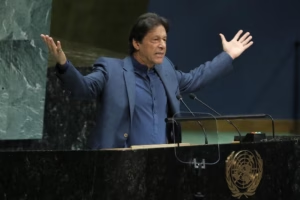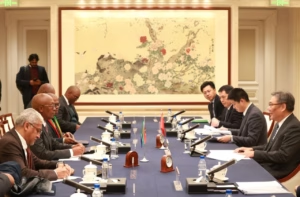As the Islamic lunar calendar edges closer to the sacred month of Ramadan, excitement is mounting within Muslim communities around the globe. The onset of Ramadan, a period defined by fasting, prayer, and introspection, is determined by the age-old practice of moon sighting. This year, it is anticipated that the fast will commence on either March 11 or March 12.
Observing the Ramadan Moon
The initiation of Ramadan in Islam’s central region, Mecca, is forecasted for either Monday, March 11, or Tuesday, March 12, following the sighting of the new crescent moon. The Islamic calendar, which follows the phases of the moon, requires the actual observation of the crescent moon to signal the start of Ramadan. Across Saudi Arabia and other countries with substantial Muslim populations, individuals will be scanning the skies for the first sight of the new moon.
The Method Behind Moon Sighting
Observers aim to spot the crescent moon by looking westward after sunset on the 29th day of Shaaban (the month before Ramadan). If the moon is seen, Ramadan will begin the next day, on March 11; if not, Shaaban will last a full 30 days, pushing the start of Ramadan to March 12. In Saudi Arabia, moon sighter accounts are gathered, and the Supreme Court makes the official declaration for the start of Ramadan.
In South Africa, the Islamic lunar calendar also determines the Islamic months, predicting Ramadan to start on March 11 or 12, 2024, and end on April 8 or 9, 2024, depending on the moon’s sighting.
Diverse Views on Moon Sighting
The visibility of the Ramadan moon can vary worldwide. The Crescent Moon Watch has indicated that the new moon will be visible on March 11 at 17:23 GMT. The initial sightings are expected near the Hawaiian Islands and parts of French Polynesia, whereas the crescent may not be visible in the Middle East and much of the Western world until March 11.
Significance of Ramadan
Ramadan is profoundly important to Muslims, marking the period more than 1,400 years ago when the first verses of the Quran were revealed to Prophet Muhammad. During the fast from sunrise to sunset, Muslims aim to achieve a greater awareness of God, abstaining from food, drink, smoking, and marital relations. This fasting is a core element of Islam, highlighting its significance alongside other fundamental practices.
Why Ramadan Is Revered
Ramadan’s holiness is deeply embedded in Islamic belief, commemorated as the time when the Quran’s initial verses were bestowed upon Prophet Muhammad. Throughout this holy month, devout followers fast from dawn, aligning with the Fajr prayer, until dusk, with the Maghrib prayer. The fast extends beyond just avoiding food and drink; it also includes abstaining from smoking and marital intimacy, aiming to foster spiritual awareness and closeness to God, or “taqwa.”
This practice is not merely a spiritual discipline but a central pillar of Islam, which also encompasses the declaration of faith, daily prayers, almsgiving, and pilgrimage to Mecca for those able.
Reflecting the month’s solemnity, in nations where Islam is predominant, daily life adapts: work hours may reduce, and restaurants often close during daylight to support the fasting ritual.
Traditions and Festive Greetings
In countries with a majority Muslim population, Ramadan alters daily routines, shortening work hours and shuttering restaurants by day. Expressions like “Ramadan Mubarak” and “Ramadan Kareem” are commonly heard, extending wishes for a blessed and generous month.
Celebrating Eid al-Fitr
Ramadan culminates in Eid al-Fitr, the “festival of breaking the fast,” a cheerful three-day event characterized by community prayers, feasting, and giving to charity. Its precise date, like Ramadan’s beginning, relies on lunar observations and is expected to occur on April 10 or 11 this year.
As the Muslim world readies for a period of devotion and self-reflection, the essence of community and faith is ever-present. Through fasting and its accompanying traditions, Ramadan is a time for deepening spiritual connection and recommitting to Islam’s values.

















